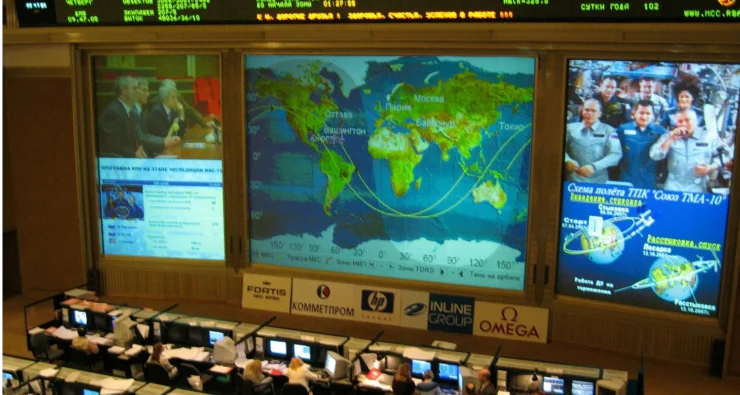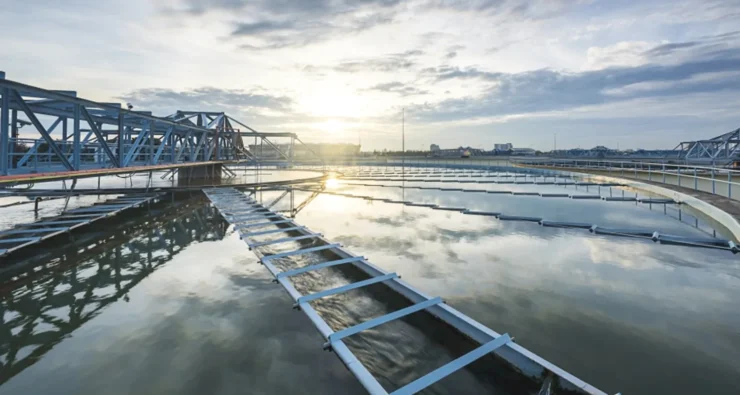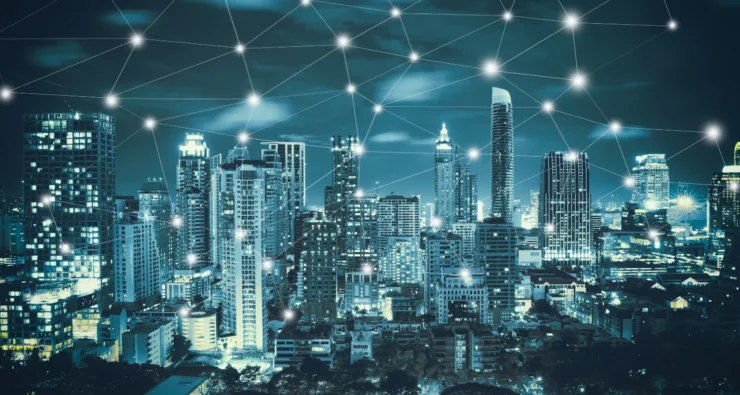The most critical parts of infrastructure to renew after a war depend on the specific context of the conflict and the extent of the damage.
INFRASTRUCTURE
Digitalized subway road map
Digitalized Seoul subway road map. Goals – Maintaining the relevance transportation industry. The map will be developed in collaboration with
The Mirror Line in Neom Saudi Arabia
The Saudi prince approved the construction of a giant “lying skyscraper”, which is to become the largest building in history.
Importance of digitalisation of a city services
The utilisation of digital technologies in regulation, administration, planning, financing and operations at smart cities…
Smart lights networks differ drastically, however, in general, the lights either function individually or together if connected.
Primary trends of future cities development
Constant innovation and technological advancement that is being introduced in the cities will be a reality in the future thus enabling…
Technologies of city security and impact on citizens
The 21st century time is absolutely the best time to live. Technology has shaped everything and life have become..
Smart technology creates opportunities. Overall development integration with smart solutions helps to aide the development of smart cities…
The meeting was attended by 9 Chinese oil, gas, and energy companies with total revenues of over $ 850.5 billion.
Life 2.0: Creating pandemic-ready smart cities
Change is a constant. We have seen several changes impacting our lives from the metal to the machine age until the digital revolution.
Opportunity for visionary municipalities
Recognition for exemplary effort is now more prevalent than ever. States and organizations seek out and reward public agencies for visionary..
Submarine cable 6,000 km long directly connects the city of Fortaleza (Brazil) to Sines (Portugal), without the need to pass through the USA.
Waste management, digital kiosks, smart streetlights, security systems, air quality systems, and open data initiatives.
The highway group responsible for setting up toll stations must apply a passive RFID reader into each spot.
Тhe wealth of initiatives in the dynamic socio-economic, technical, and policy environment in the EU of Smart City characteristics.
Sustainable development goals framework – The 2030 Agenda for Sustainable Development, adopted by all United Nations Member States in 2015.
To grow agricultural products, mostly sun and good soil are enough. London’s Growing Underground Farm.
China investment plans in Hyperloop
There are millions of passenger cars driving through the streets of the largest cities in China.
Buildings play a key role in the fight against climate change, using 40% of the energy consumed in cities. The improvements in the energy efficiency…
Energy savings in lighting are currently reached via the switch from traditional light sources to more efficient ones such as LEDs.
Smart alarms and simulation for urban flooding
Urban stormwater is one of the biggest problems facing our waterways today. Urban cloudbursts and the resulting rapid stormwater that overflows along…
Climate change expectations are for greater rainfall intensities, while governmental directives require municipalities to implement new methods for…
Extreme winter storms disrupt citizens’ normal lives by blocking roads and causing electricity and communication network outages. In addition…
Electric cars are not only worried about their price or practical usability, but the problem is that if they were to sell millions in the near future, as…
City progress monitoring and operation systems
The aim of a city system is to combine city level operation with co-operation between different local systems in order to monitor performance and opti…
Norway struggles on lack of charging stations
Norway is one of the few countries that have massive support for electric cars. The government has solved it quite simply. They have offered a combination of benefits that push you directly into a new electric car purchase even if you do not want it. For example, conventional cars with an internal combustion engine are […]
Arabia’s build smart mega-city is not for conventional people. The place for the dreamers…
Smart water management system in modern Smart Cities
Smart management systems in sustainability maintains a high quality of life for every citizen. One of the key requirements…
4 Countries Where Smart Cities Are Built Using Blockchain
McKinsey’s analysts predict that by 2020 the world’s number of smart cities will reach 600, and five years later.
How can we recognise that city planning is Smart oriented
Contributions of the smart city concept to urban planning. This article discusses the interrelationships…
Smart infrastructure technologies, which are collectively referred to as intelligent transportation systems…
Objectives and trends of the e-government that enables governments to become a public limitless…
Green direction development steps to Smart City
The special value of the theory of C. Graves is that the highest levels of development of values do not deny, but include…
Smart farming to secure sustainable food logistics
It is faced with a new set of challenges, including agricultural productivity, food security and a raft of other contemporary concerns…
Technological solutions creating Smart City concept
One of the major problem facing modern cities is traffic congestion. As traffic control becomes increasingly difficult due to increase…







































